Saving Our Trees: Why We Must Protect Our Forests 🌲🌳🏕️
Protect our forests from increased logging to preserve our wild, beautiful landscapes for future generations.
Hello, wilderness explorers, tree huggers, and activists,
It’s been a brutal few weeks. And this latest Executive Order calling for the Immediate Expansion of American Timber Production is a punch in the gut.1
They’re coming for our trees. Right now.
If you’re pissed off, you’re not alone. I am too.
It’s time for action, right now!
I write to raise awareness, join peaceful protests, contact my representatives to push back, and follow @ResistanceRangers on Instagram for protest info and actions.
When we fight back, we win. The good news is that we are winning small battles in the struggle and must continue to fight back, preserve our democratic rights, and save the trees.

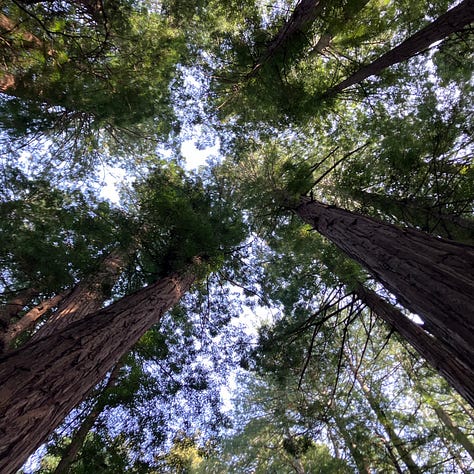
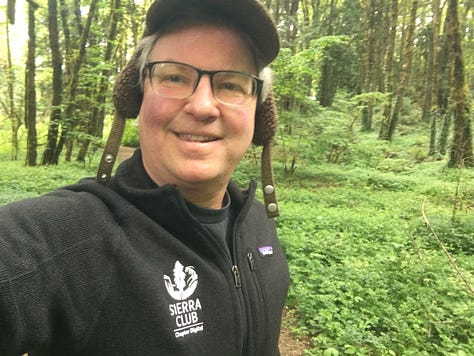
My Journey Through the Trees
Being outdoors in nature has always been a part of me. Growing up in Colorado with the Rocky Mountains in my backyard, I loved exploring the forests. When my family moved to California, I discovered the Giant Redwoods and Sequoias in our National Forests and National Parks.
As I grew older, my passion for the outdoors continued. In grad school, I worked on a Smokey Bear project to prevent wildfires. Raising my family, we hiked, biked, and camped in forests and national parks across the country.
Working at the Sierra Club allowed me to help Chapter folks speak up for our forests and trees in meaningful ways with digital tools. Now, I volunteer as a leader for local outings in Oregon, and as a writer crafting mystery thrillers set in National Parks.
Trees are important. For me, for us, for our planet.
Why Forests Matter
Forests are the lungs of the Earth, absorbing carbon dioxide, releasing oxygen, and regulating the climate. One large tree can produce enough oxygen for four people per day, so imagine the impact of clear-cutting entire forests.
Forests also store vast amounts of carbon, helping to mitigate climate change. When trees are cut down, this carbon is released into the atmosphere, contributing to global warming.
Forests filter and purify water, reducing pollution before it reaches our rivers and streams. These ecosystems support countless species, from birds and mammals to fungi and insects, all playing crucial roles in maintaining environmental balance.
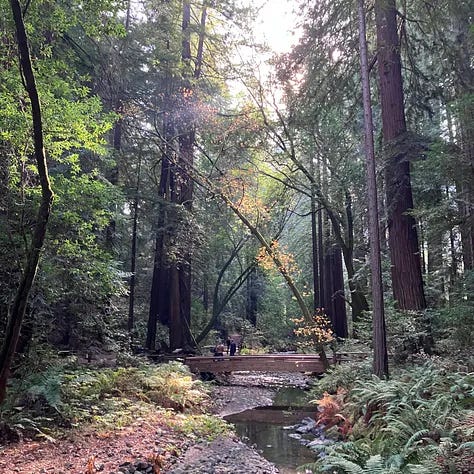
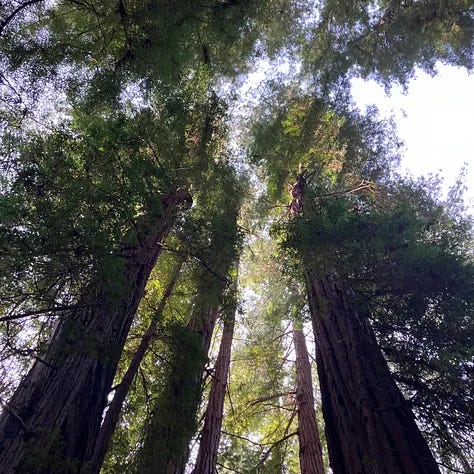
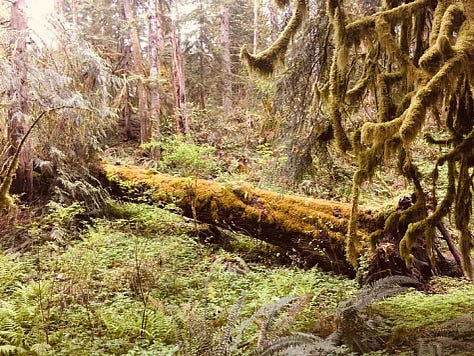
Why The Executive Order Gets It Wrong
Our forests are under attack. Increasing logging on public lands puts millions of acres of trees at risk, threatening ecosystems, wildlife, and the very air we breathe. This isn’t just a conservation issue; it’s about the health and survival of our planet and communities.
The order promises jobs, economic growth, and wildfire prevention through increased logging. But based on my experience in environmental leadership, my background in business with a Wharton MBA, and common sense, I can tell you this isn’t the answer.
Sustainable economic benefits from outdoor recreation and nature tourism far outweigh those from logging.
Proper forest management is essential for maintaining healthy ecosystems and reducing fire risk.
Clear-cutting destroys critical habitats, exacerbates climate change by releasing stored carbon, and disrupts the water cycle.
Protecting our forests ensures conservation, sustainable growth, effective wildfire management, and a healthy environment for future generations.
Our Forests Are Worth More Standing
Lots of folks without an MBA or common sense will argue that cutting regulations and forests is needed for the economy. Except, this is wrong.
The economic case for cutting down our forests falls apart under scrutiny. Outdoor recreation and nature tourism generate far more sustainable economic benefits than logging ever could.
National Parks alone generate billions each year. Do you want to go somewhere where all the trees were cut down? National parks are vital to our economy. In 2023, 325 million visitors spent an estimated $26.4 billion, boosting local economies near parks. This visitor spending supported 415,400 jobs and generated $19.4 billion in wages. The economic benefits from tourism far outweigh those from logging, proving that protecting our forests not only conserves nature but also supports sustainable economic growth.2
The Impact on Oregon
Oregon is the nation’s largest timber producer. Logging is part of our history and economy. But clear-cutting policies would devastate the state. Oregon’s ancient trees take centuries to mature. Once cut, they’re nearly impossible to replace. Large-scale logging disrupts ecosystems, leaving behind drier, more fire-prone landscapes. Intact forests are more resistant to wildfires.
Timber jobs matter, but excessive logging leads to long-term economic decline when resources are depleted. Sustainable forestry provides a more stable solution.
Oregon’s outdoor industry is a major economic driver. National Parks and forests attract hikers, campers, and nature lovers, all supporting local businesses. Many forests hold sacred and historical significance to Indigenous communities.
People don’t visit Oregon to see clear-cuts. They come for old-growth forests, wild rivers, and wildlife. They come for a walk in the woods and to experience the beauty of nature protected and preserved by conservational organizations like the Sierra Club.
A Call to Action
I will continue to speak out for our parks, forests, and public lands. If you’re ready to take action, I encourage you to call your representatives, support organizations fighting for public lands, and stand up for the places we love. If you’re looking for a great community to connect with, follow @ResistanceRangers on Instagram and stay involved with groups like the Sierra Club that are on the front lines.
Life is a journey—and together, we can keep our path wild, beautiful, and free.
The White House. Immediate expansion of American timber production. https://www.whitehouse.gov/presidential-actions/2025/03/immediate-expansion-of-american-timber-production. Published March 2025. Accessed April 13, 2025.
USAFacts Team. How do national parks affect the economy? https://usafacts.org/articles/how-do-national-parks-affect-the-economy/. . Published February 21, 2025. Accessed April 13, 2025.




Right on Kacey!!